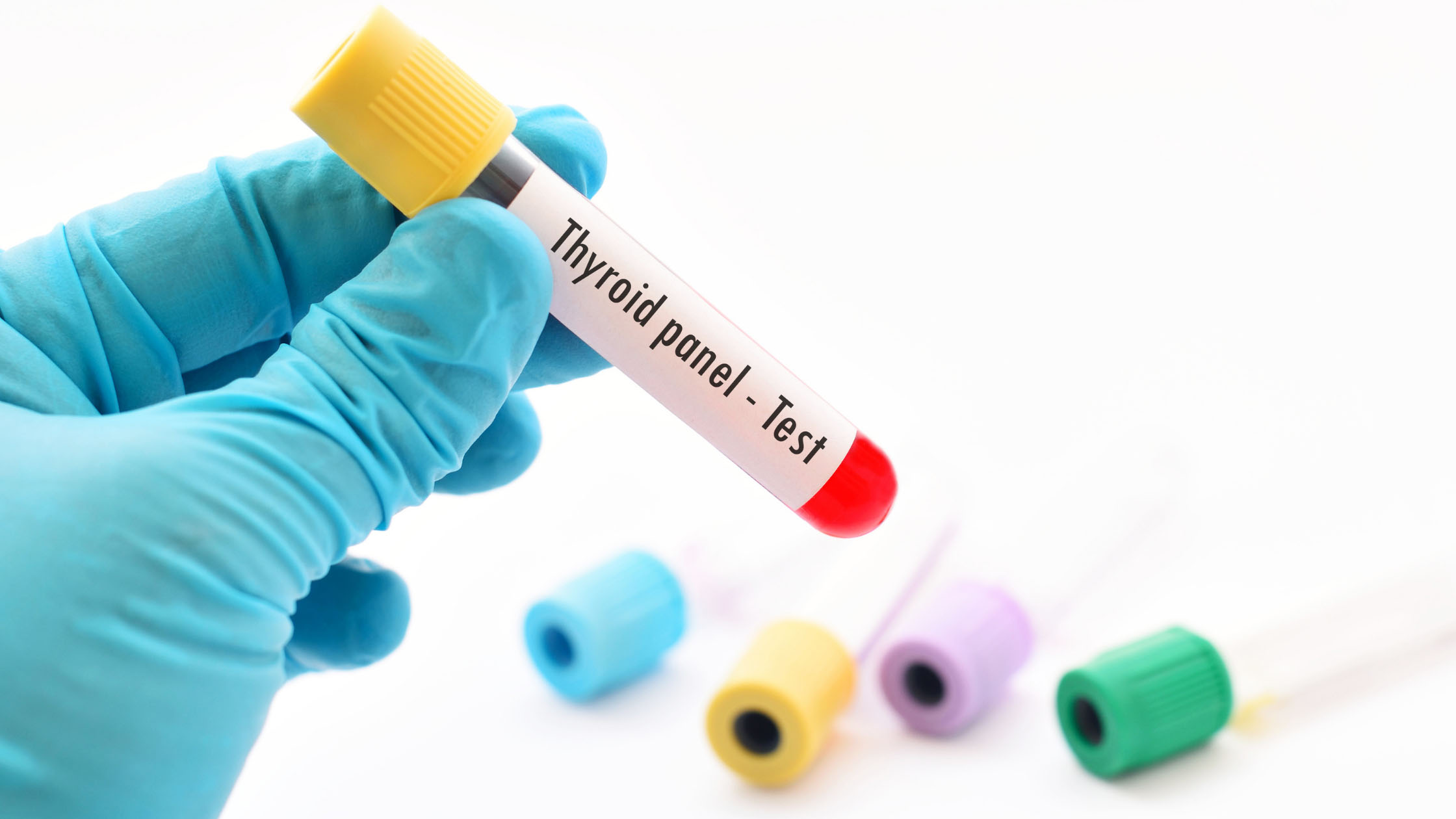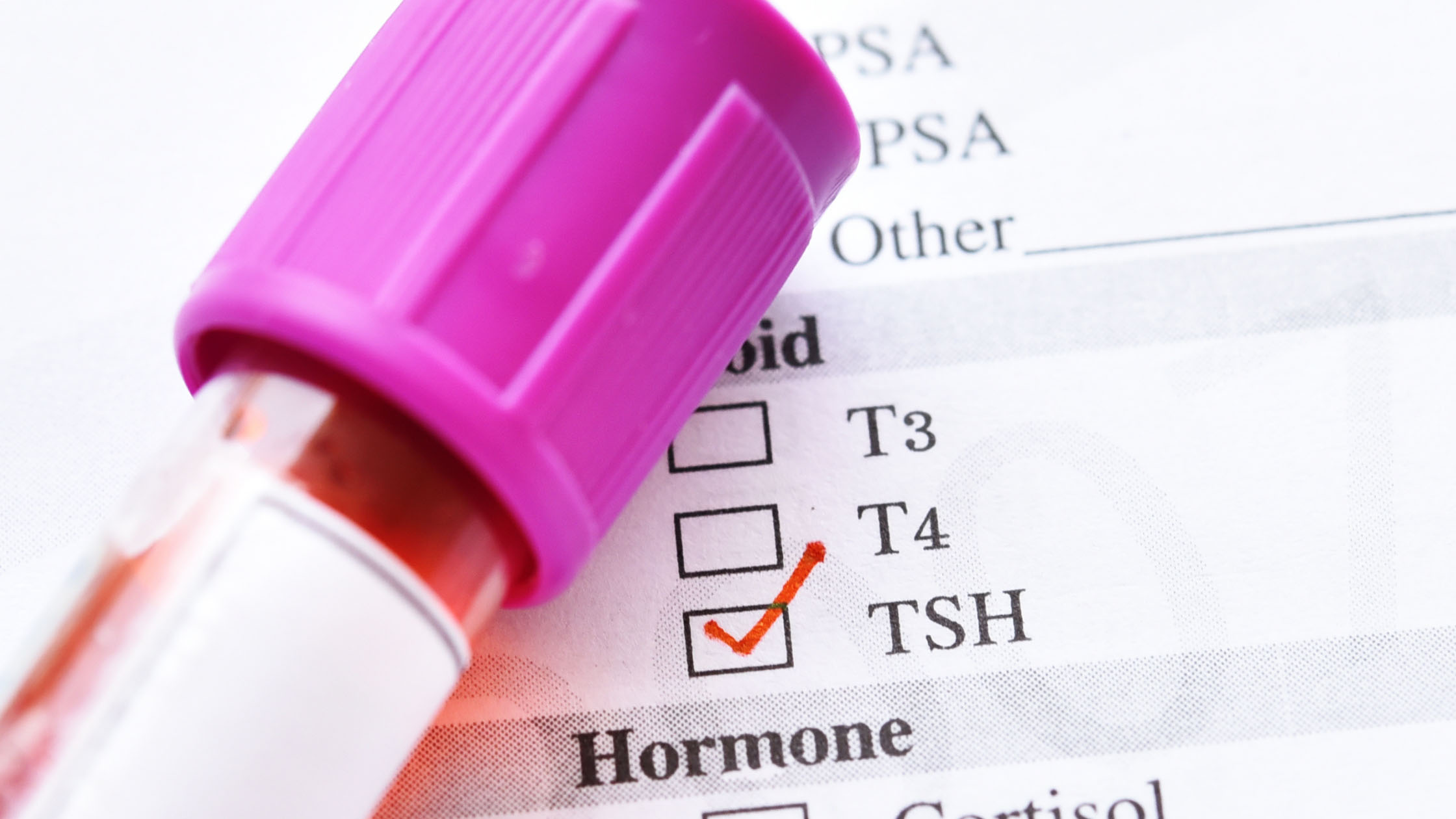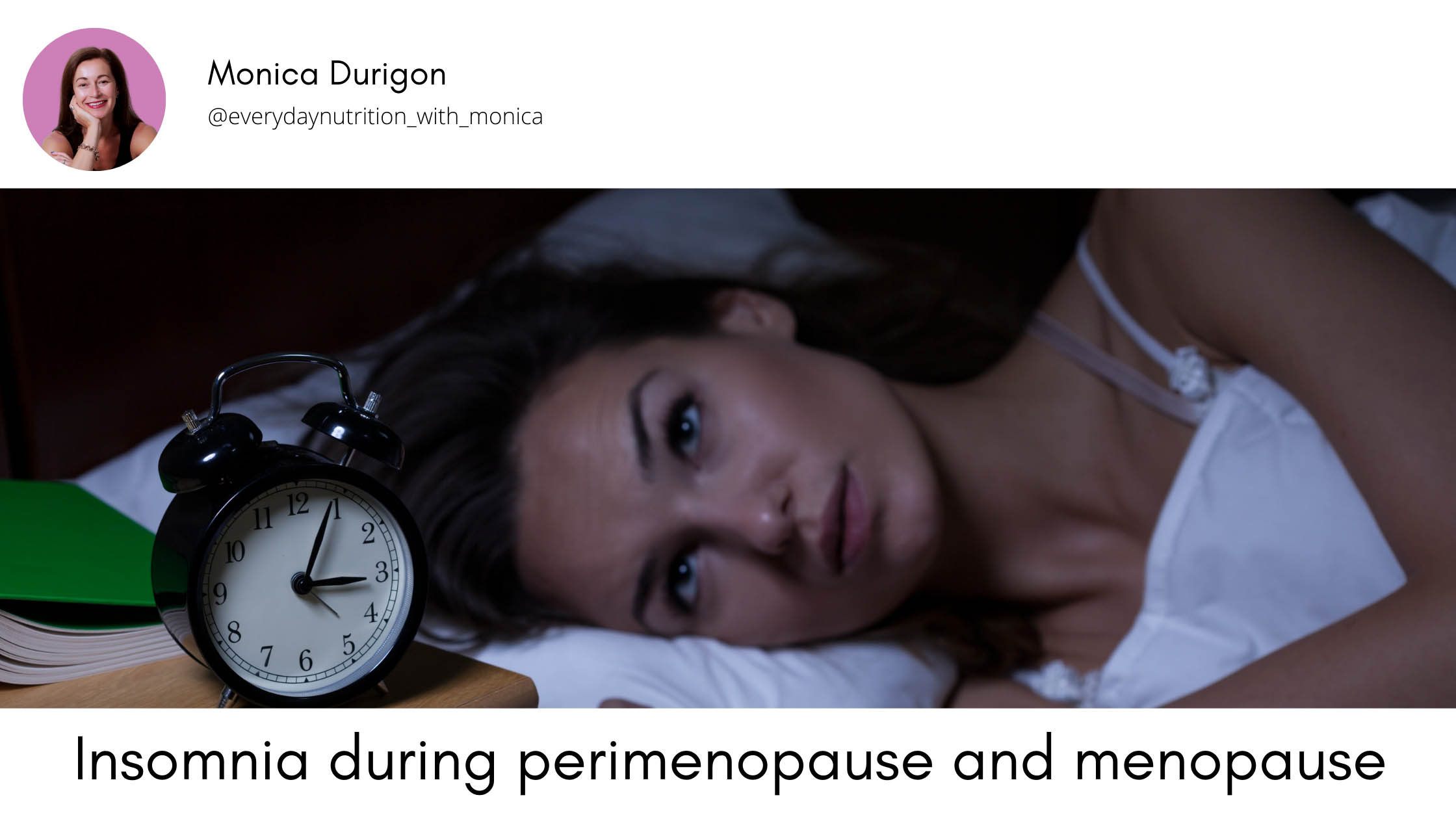Many women in their 40s start feeling the symptoms and showing the signs typical of an underactive thyroid. I have seen this happening so many times in my clinic, and unfortunately, many times, this has gone undiagnosed for months and even years.
Consequently, despite their best efforts to lead a healthy and balanced lifestyle, women with an undiagnosed underactive thyroid feel exhausted, their weight keeps on piling on, and their symptoms increase. All of this happens whilst they are told that their test results are normal and there is nothing to worry about! In this blog, you will learn why this can happen and what you can do about it.

Thyroid 101
Let’s start with a brief and super simple biology snippet. The thyroid is a butterfly-shaped gland in our neck and produces different types of thyroid hormones but, in the majority, T4.
Every cell in your body has receptors for the thyroid hormones, so if your gland does not behave properly and is not part of the team … your cells and your whole body will suffer. The thyroid hormone is the main driver for metabolism, the rate at which your body burns calories. If your thyroid is underperforming, your metabolism slows down, showing in many different ways.

Most common signs and symptoms of an underactive thyroid
Weight gain
Inability to lose weight
Hair loss
Lashes and eyebrows thinning
Dry skin
Dry hair
Thin, brittle fingernails
Constipation
Cold feet and cold hands
Decreased sweating
Recurrent headaches
Muscle and joints pain
Poor muscle toning
But what is even worse is that it affects our energy levels, and our ability to think quickly. Clients describe it as being in a mental fog, their moods get affected, and they start feeling more irritable, anxious or low and depressed. In fact, one of the first symptoms of a thyroid that is not working optimally can be a sense of anxiety.
Autoimmune thyroiditis is the number one cause of an underactive thyroid ( the most common type is Hashimoto’s). In Hashimoto’s, our immune system gets confused and overactivated and attacks its own tissues. There are hundreds of auto-immune conditions, and Hashimoto’s is an autoimmune disorder where your immune system destroys the thyroid cells.

How can you get Hashimoto’s?
There are so many reasons we can develop an autoimmune disorder; we can group them in genetic predisposition, leaky gut, and lifestyle factors that influence the expression of those genes, such as diet, stress, chronic infection, trauma and toxins.
But there are also other causes of an underactive thyroid. We can have a thyroid that is not attacked by the immune system but is still not performing at its best, and this could be because of a lack of nutrients due to restrictive, unhealthy diet plans, super low carbs diets or restricted calories for too long.
Thyroid health can also be compromised by high-stress levels, certain medications, and chronic low-grade inflammation in your body. Chronic infections ( for example, in your gut – bacterial, yeast and parasites) and elevated exposure to toxins can cause low-grade chronic inflammation.

How do I know if my thyroid is not working optimally?
This is a question that I often get asked in my FB community “Weightloss, great energy, more focus!”.
You need to get tested, and you need to get tested properly. Your GP can only offer you a test for TSH level, which stands for thyroid-stimulating hormone, and this is only a small part of the picture.
TSH is the message from your pituitary gland ( a pea-sized gland in your brain ) to the thyroid and instructs the thyroid to produce more or less of the hormone thyroxine. Your brain constantly monitors your blood for thyroid hormones and communicates with your thyroid gland.
A proper thyroid test should also include T4 and T3 (the thyroid hormones), and also the autoantibodies to the gland, TPOab thyroid peroxidase antibody and anti-thyroglobulin antibody, TGab.

There are two problems with a TSH alone result
- It only shows you the message from the brain to your gland and not how your gland is performing.
- The reference ranges are very, very wide – the NHS range is 0.27 to 4.2. Still, the common consense among endocrinologist experts is that TSH should be below 2.5, with some hormone specialists advocating for an even lower margin.
So if your TSH is above 2.5, your thyroid gland is already in need of some attention, and further investigation is granted, especially if you do have any of those symptoms and signs that I have explained earlier.
I use a private lab with my clients in the Fit and Focused Formula to assess their thyroid health status. For a very modest investment, I can obtain all of the above markers for thyroid health and, according to the results, advise them on the necessary lifestyle, nutritional, and supplementation recommendations.

What can I do if I have an underactive thyroid?
The great news is that the correct advice can significantly improve thyroid health. and even markers of autoimmnity can be improved. This will not happen when hormonal replacement alone is adopted. If you only take thyroxine prescribed by your doctor, the hormone alone is not improving your autoimmunity. You need to address the root causes of the autoimmunity as well.
Also, you must be aware that in the case of a thyroid underactive due to autoimmunity, certain supplements might not be suitable for you and might even be causing more harm than good. I always advise you to follow a tailored supplementation plan designed by a qualified nutritional therapist. Nutrients are not suitable for everybody, and must be taken in the right quantities for the correct use, and are not universally beneficial.
If you wish to know more about the testing I offer my clients, get in touch, and I can give you more information.
In my next blog, I will explain what you can do to support your thyroid naturally, whether you want to prevent any problems or if you need to be intervening to improve a current imbalance.
I will discuss scienced-based lifestyle and nutritional interventions that I use with my clients in the Fit and Focused Formula and give excellent results.
With love, energy and care






0 Comments